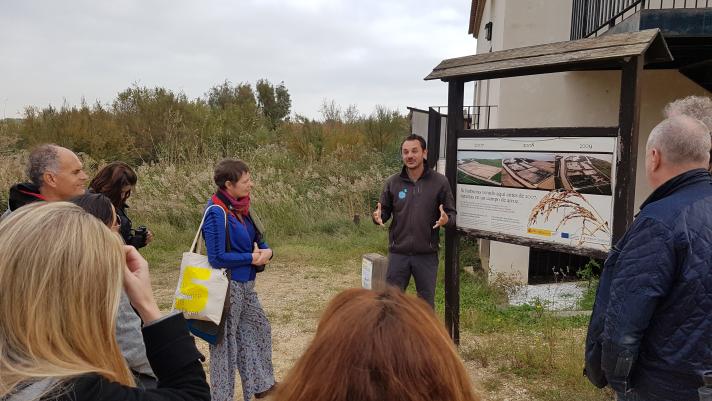Topic(s) addressed
-
Sustainability
-
Learning together
-
Biodiversity
-
Environment
-
21st-century skills
Target groups
-
Secondary education teachers
-
Secondary school pupils
-
Municipalities
-
Science and sustainability networks
Methodologies
-
The consortium actively built STEM learning ecosystems on sustainable landscapes.
-
In each country, the learning ecosystem/hub consisted of a university, two secondary schools and other providers of science education and/or science communication.
-
EUSEA - an international knowledge-sharing platform and accelerator of innovation in public engagement was included.
-
The learning ecosystems used recognized Inquiry-Based Science Education (IBSE) techniques, guaranteeing meaningful teaching materials, freedom of choice for learners, supervision and coaching.
-
The IBSE approach provided the pupils with an insight into the process of Responsible Research and Innovation.
Environments
-
The online modules included offline and outside classroom activities to
-
combine both formal and informal learning.
-
Materials on academic skills to support both pupils and teachers were included in these modules.
-
Caretakers, students and regional stakeholders (without differentiation) created the target groups for further impact.
-
Among the regional stakeholders were nature conservation organisations, local authorities and providers of science education and/or communication, such as museums and science centres.
-
In the three regions (Northern Netherlands, Valencia (Spain) and Cyprus), stakeholders developed initiatives to support the regional STEM learning ecosystem.
Teachers
-
The teams of scientists, teachers and providers of science education and communication in the three countries contributed to the development of the different intellectual outputs. After the development of the modules, the teachers of the secondary schools tested and evaluated these modules in the classroom.
-
They were coached by the local experts in formal education.
Impact
-
With the SUSTAIN project, the consortium sparked dialogue on sustainable landscapes between secondary schools, universities and other educational providers to articulate a sense of urgency for regional sustainable development goals.
- Reference
- 2017-1-NL01-KA201-035284
- Project locations
- Netherlands
- Project category
- Secondary education
- Project year
- 2022
Stakeholders
Coordinators
Rijksuniversiteit Groningen
- Address
- Netherlands
EUSEA-wuropaische Gesellschaft fur Wissenschaftsveranstaltungen
- Address
- Austria
Forum Private Greek School
- Address
- Cyprus
EDEX- Educational Excellence Corporation Ltd.
- Address
- Cyprus
The Heritge Private School
- Address
- Cyprus
Piter Jelles Leeuwander Lyceum
- Address
- Netherlands
Provincie Fryslan
- Address
- Netherlands
RSG de Borgen
- Address
- Netherlands
Institut Educacio Secundaria El Saler
- Address
- Spain
Universitat De Valencia
- Address
- Spain
Universitat Politecnica De Valencia
- Address
- Spain
Centro Integrado Publico de Formacion Profesional Misericordia
- Address
- Spain

